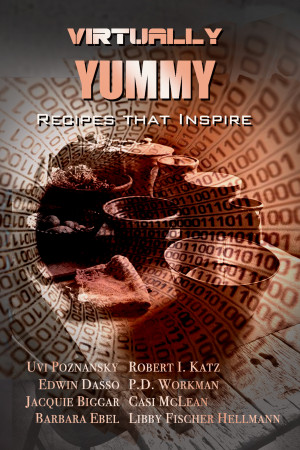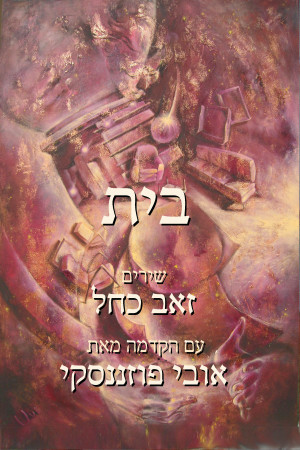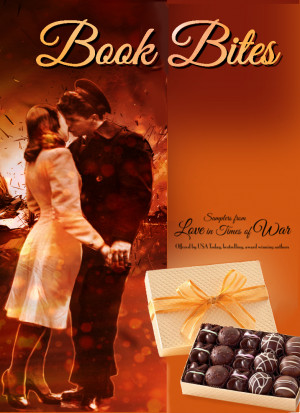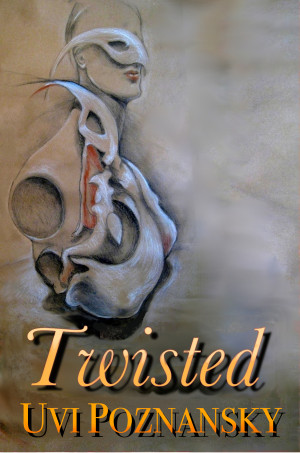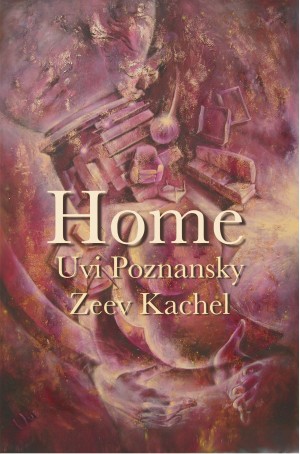Share with Friends
Interview with Uvi Poznansky
Published 2015-01-26.
Smashwords Interviews are created by the profiled author or publisher.
Books by This Author
Virtually Yummy
by Uvi Poznansky, P.D. Workman, Casi Mclean, & Libby Fischer Hellmann
Price:
Free!
Words: 13,710.
Language:
English.
Published: May 12, 2020
.
Categories:
Nonfiction » Cooking, Food, Wine, Spirits » American / General, Nonfiction » Cooking, Food, Wine, Spirits » General cookbooks
The recipes in this book come from different sources: some of them are family recipes, some were garnered from our travels around the world, and others—inspired by our research, which enables us to write about the adventures of our characters and their culinary feats.
But no matter where these recipes come from, we find them not only delicious but also inspiring. We hope you will too.
בית
by Uvi Poznansky
Price:
$0.99 USD.
Words: 10,960.
Language:
English.
Published: November 11, 2017
.
Categories:
Poetry » Biography, Poetry » Russian & Former Soviet Union
בית. מילה פשוטה. מילה בעלת משמעויות מורכבות. מילה של לחש, מילה של זעקה. מילה של געגועים למקום מושלם, מקום שלעולם לא נמצאנו שוב.
ספר זה מכיל קובץ של שירים בשפת המקור, מפרי עטו של המשורר, הסופר והאמן זאב כחל. השירים נכתבו בערוב ימיו ונתגלו על ידי בתו, אובי פוזננסקי, בזמן השבעה. שש שנים מאוחר יותר, היא תרגמה את הקובץ לאנגלית ופרסמה אותו, יחד עם מבחר משיריה:
Home
Book Bites: The Wrong Girl
by Uvi Poznansky
Price:
Free!
Words: 12,260.
Language:
English.
Published: January 15, 2017
.
Categories:
Fiction » Romance » Historical » General, Fiction » Romance » Short stories
The Wrong Girl offers samples from books in the Still Life with Memories series. These samples give a taste not of Natasha (the girl Lenny loves) but rather of another woman, Lana. Flirtatious enough to stir suspicion, she upsets the course of his life time and again.
Book Bites: Love in Times of War
by Uvi Poznansky
Price:
Free!
Words: 24,570.
Language:
English.
Published: November 14, 2016
.
Categories:
Fiction » Romance » Historical » General, Fiction » Romance » Suspense
Book Bites offers samples from 9 romance novels and novellas. We hope you will find them not only delicious but also arousing an irresistible craving for more.
Twisted
by Uvi Poznansky
Price:
Free!
Words: 17,970.
Language:
English.
Published: February 26, 2015
.
Categories:
Fiction » Horror » Ghost, Fiction » Fantasy » Short stories
(5.00 from 3 reviews)
Come into a dark, strange world, where everything is firmly rooted in the familiar—except for some quirky detail that twists the yarn, and takes it for a spin in an unexpected direction. So prepare yourself: keep the lights on.
Home
by Uvi Poznansky
Price:
Free!
Words: 22,190.
Language:
English.
Published: January 23, 2015
.
Categories:
Poetry » Biography, Fiction » Anthologies » Poetry - multi-author
(5.00 from 2 reviews)
Home. A simple word; a loaded one. You can say it in a whisper; you can say it in a cry. Expressed in the voices of father and daughter, you can hear a visceral longing, in poems and prose, for an ideal place. A place never to be found again.

